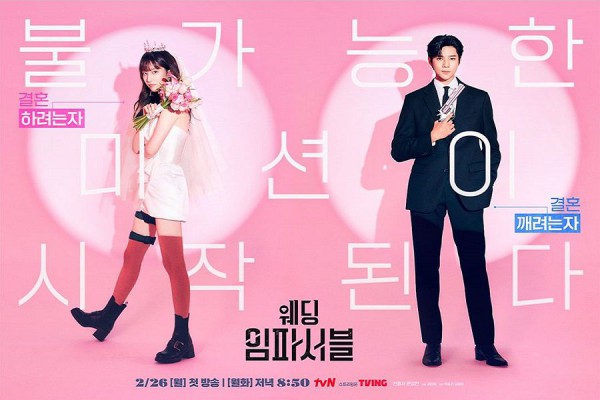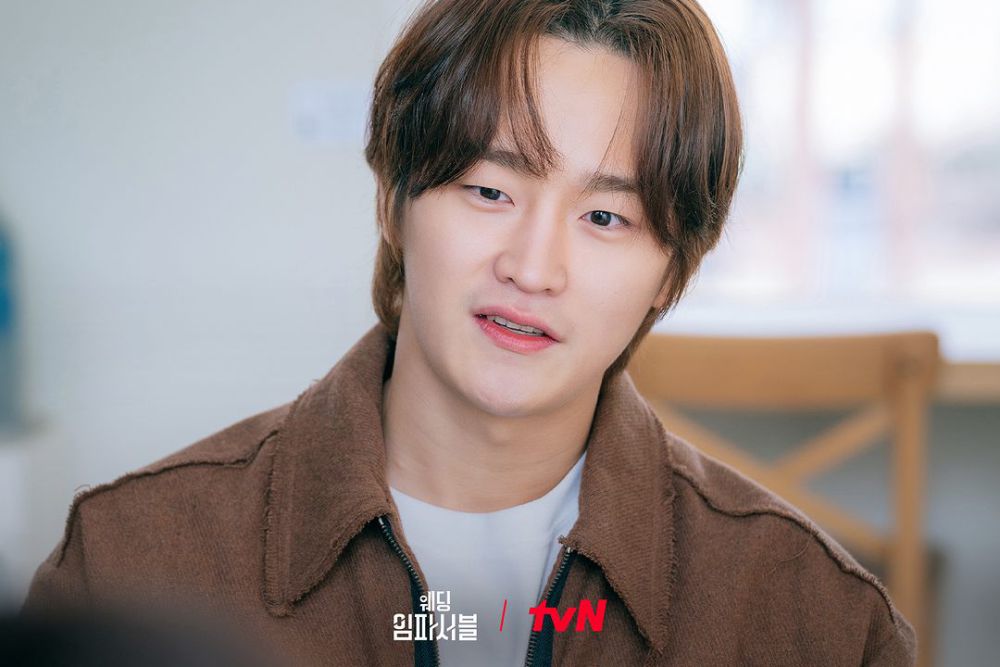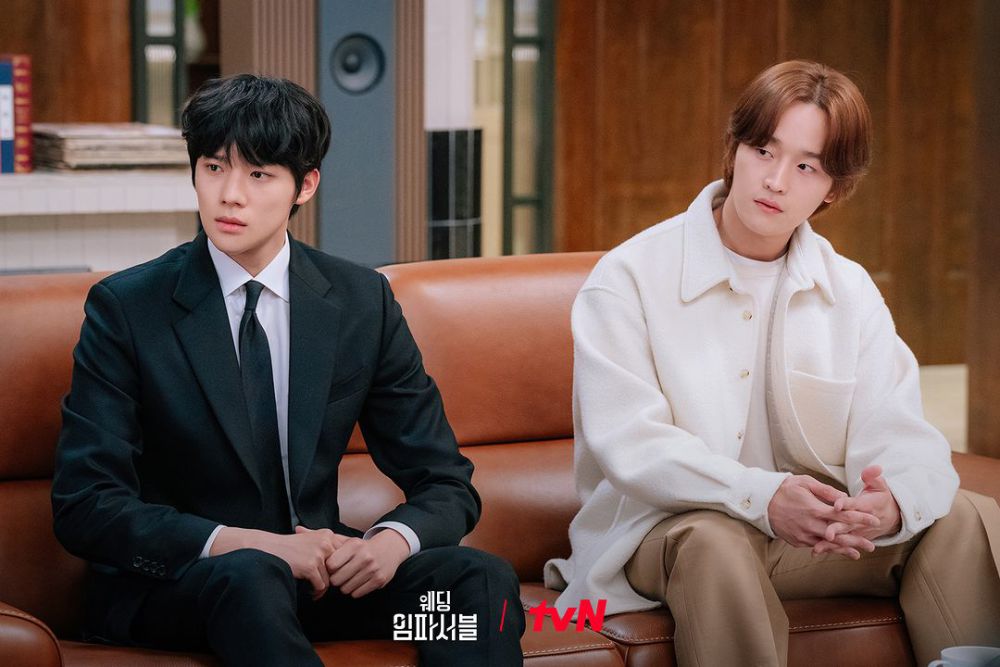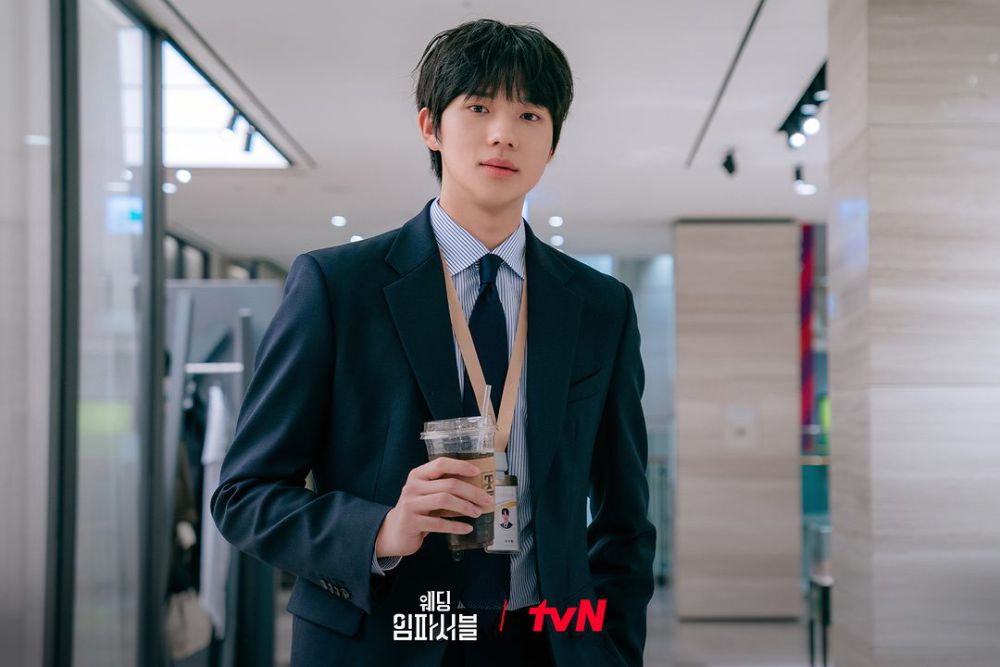The latest episode of “Wedding Impossible,” which aired on Tuesday (3/4/2024), brought to light a myriad of intertwined narratives, each laden with its own complexities. From Na Ah Jeong’s (Jun Jong Seo) relentless pursuit of an acting career to Lee Ji Han’s (Moon Sang Min) familial tribulations, and the unmasking of Lee Do Han’s (Kim Do Wan) hidden facets, the drama offers viewers a rich tapestry of storytelling, complete with romantic entanglements between characters.
Yet, amidst the drama’s intricacies lies a sobering examination of the consequences wrought by deception. As is commonly acknowledged, falsehoods serve no lasting purpose, inevitably unraveling under the scrutiny of truth.
Over the span of its 12 episodes, “Wedding Impossible” serves as a compelling case study, elucidating the multifaceted impacts of dishonesty. Let us delve deeper into three significant ramifications highlighted within the series:
1. Personal Unhappiness
Lee Do Han, grappling with the need to conceal his homosexuality, resorts to a desperate measure: orchestrating a sham marriage with his closest confidante, Na Ah Jeong. Motivated by his grandfather’s insistence on an alliance with Yoon Chae Won (Bae Yoon Kyung) to secure his position within the LJ Group, Lee Do Han sacrifices his own happiness and artistic aspirations. Trapped in a web of deceit, he navigates a precarious existence, burdened by the constant fear of exposure and ostracization.
2. Emotional Strain and Betrayal:
Na Ah Jeong, reluctantly complicit in Lee Do Han’s ruse, finds herself ensnared in a labyrinth of lies. Obliged to deceive her own family and friends, she grapples with a profound sense of guilt and emotional turmoil. Furthermore, the revelation of the fabricated union strains her relationship with Lee Ji Han, who feels deeply betrayed upon learning of his brother’s deception. The ensuing rift between siblings serves as a poignant reminder of the corrosive effects of deceit on interpersonal bonds.
3. Perpetuation of Misguided Beliefs and Prejudices:
The tragic demise of Han Soo Yeon serves as a stark illustration of the enduring legacy of deception. Misled by their father’s manipulation, Choi Seung Ah and Choi Min Woong harbor unwarranted animosity towards Lee Ji Han, whom they erroneously blame for their mother’s untimely death. Fuelled by resentment and unfounded accusations, their misguided beliefs perpetuate a cycle of hostility and distrust. However, the eventual revelation of the truth prompts a reassessment of their prejudices and a journey towards reconciliation.
While “Wedding Impossible” may be a work of fiction, its thematic underpinnings resonate deeply with real-life experiences. Through its compelling narrative, the series serves as a sobering reminder of the inherent fragility of deceit and the far-reaching consequences it begets.
In essence, “Wedding Impossible” compels viewers to confront uncomfortable truths about the nature of deception and its profound impact on individuals and communities alike. As the series unfolds, it implores us to reflect on the importance of honesty, transparency, and authenticity in fostering genuine connections and nurturing meaningful relationships.
In a world fraught with uncertainty and ambiguity, “Wedding Impossible” serves as a beacon of moral clarity, illuminating the path towards redemption, forgiveness, and ultimately, the triumph of truth.



